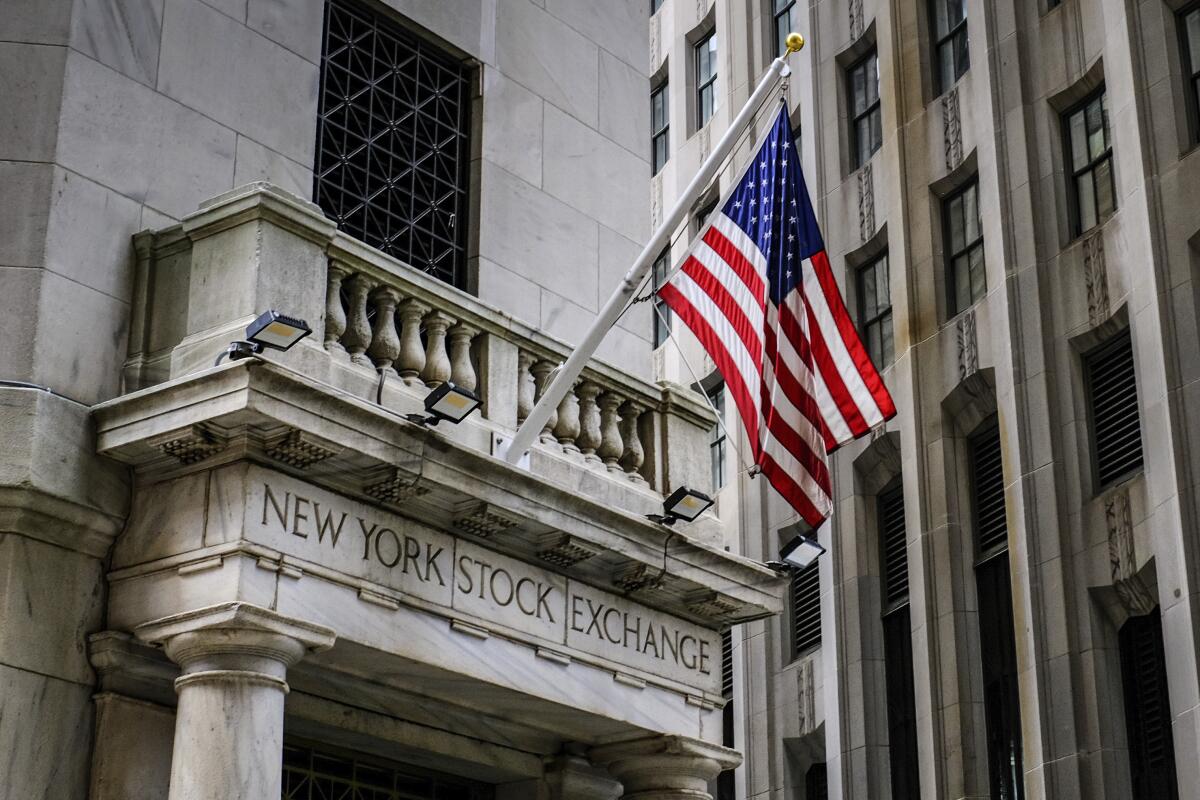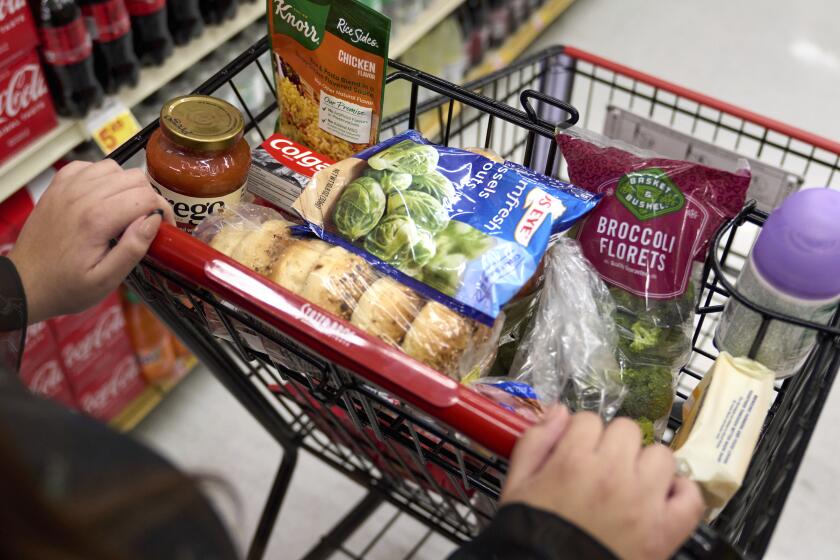Wall Street closes its worst week in the last three with a quiet finish

- Share via
Stocks edged higher Friday but not by enough to keep Wall Street from closing out its first losing week in the last three.
The Standard & Poor’s 500 ticked up 6.35 points, or 0.1%, to 4,457.49 after falling for three straight days. It lost 1.3% for the week, which was shortened by the Labor Day holiday.
The Dow Jones industrial average rose 75.86 points, or 0.2%, to 34,576.59, and the Nasdaq composite added 12.69 points, or 0.1%, to close at 13,761.53.
Those indexes also fell for the week because of worries that a too-warm economy will push the Federal Reserve to keep interest rates high for longer. Traders ratcheted back expectations for cuts to rates next year by the Fed after reports showed the U.S. economy remains resilient despite much higher rates and struggles for other economies around the world.
Such data have pushed yields higher in the bond market, which hurts stock prices. But yields held relatively steady Friday, helping to keep Wall Street quiet.
The yield on the 10-year Treasury edged up to 4.26% from 4.25% late Thursday. The two-year Treasury yield rose to 4.97% from 4.95%.
Despite more than a year of widespread warnings that a recession was near, America’s economy is, if anything, accelerating.
Companies are basically done with reporting their earnings results for the spring, but a few made some of the largest moves Friday.
Smith & Wesson Brands jumped 10.8% after the gun maker reported stronger results for the three months through July than analysts expected. The summer is usually a lean season for the company, but its sales rose 35% from a year earlier.
Kroger climbed 3.1% after its earnings report. The grocer’s profit for the latest quarter topped analysts’ expectations, but its revenue fell short.
The company announced with Albertsons an agreement to sell some stores, private-label brands and other assets as they try to get approval from regulators for their proposed merger. Kroger also announced an agreement under which it would pay more than $1.2 billion to settle the majority of claims related to opioids that could be brought against it by states, subdivisions and Native American tribes.
The upcoming week could be a busier one for markets globally. The likely centerpiece is the latest monthly update on inflation in the United States, due Wednesday. Economists expect it to show prices at the consumer level were 3.6% higher in August than a year earlier.
Inflation has been generally coming down since peaking above 9% last summer, but the worry is the last bit of improvement to get to the Fed’s 2% target may prove the most difficult. That’s why strong economic reports recently have unsettled the market. They could be providing fuel for U.S. households to keep spending, which could encourage companies to push prices up further.
Consumers are switching grocery stores, brands and ingredients as they try to cope with the cost of food.
High rates are supposed to slow the economy and hurt the job market, which should help undercut inflation. But the highest rates in more than two decades have yet to do that. The threat is that could push the Fed to raise rates again and at the very least to keep them high for longer than investors expect.
In conversations with clients, strategists at Bank of America say they’re hearing the belief that the Fed is done raising rates and the acceptance that rates will stay higher for longer. “We disagree on the former and agree on the latter,” the strategists led by Mark Cabana wrote in a BofA Global Research report. “Both imply higher rates.”
Bank of America says the slow moderation of the job market could push the Fed to raise rates again in November. Most of Wall Street expects the Fed to stand pat on rates at its next meeting later this month.
Also coming next week will be a decision on rates by the European Central Bank and more data about China’s economy. China’s recovery since removing anti-COVID restrictions has fallen well short of expectations, which has removed a big driver of growth for the global economy but also helped to remove some upward pressure on inflation.
In stock markets abroad, Japan’s Nikkei 225 dropped 1.2% after a report showed the world’s third-largest economy grew at a 4.8% annual pace in the April-to-June quarter. That’s weaker than an earlier estimate of 6% growth.
Indexes were modestly lower across much of the rest of Asia, though a bit higher across Europe.
AP writers Matt Ott and Elaine Kurtenbach contributed to this report.
More to Read
Inside the business of entertainment
The Wide Shot brings you news, analysis and insights on everything from streaming wars to production — and what it all means for the future.
You may occasionally receive promotional content from the Los Angeles Times.












